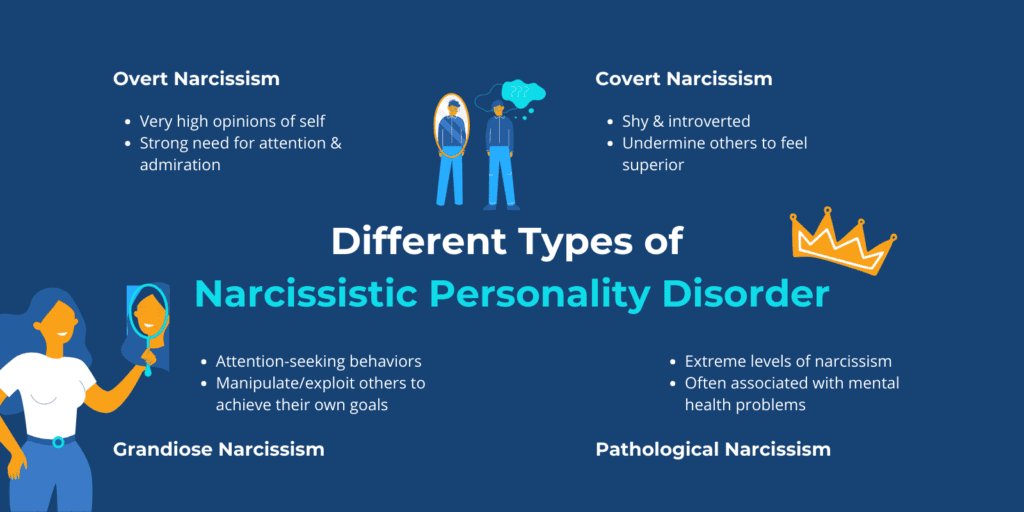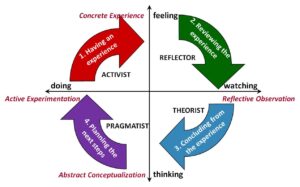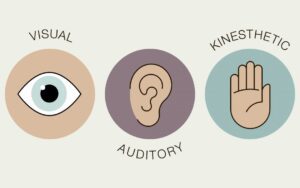
What is a Narcissist?
Many people think of or refer to the term Narcissism or Narcissist to describe someone who seems excessively vain or full of themselves. But in psychological terms, Narcissism doesn’t mean self-love. Instead, people with Narcissistic Personality Disorder (NPD) are in love with an idealized, grandiose image of themselves. They are in love with this inflated Self-image to avoid deep insecurity. However, maintaining their delusions of grandeur takes a lot of work, and that’s where the dysfunctional attitudes and behaviors come in.
Narcissistic Personality Disorder involves a pattern of Self-centered, arrogant thinking and behavior, a lack of Empathy and consideration for others, and an excessive need for admiration.
Some describe people with NPD as cocky, manipulative, selfish, condescending, and demanding. This way of thinking and behaving surfaces in every area of the Narcissist’s life, from work and friendships to family and love relationships.
People with Narcissistic Personality Disorder are highly resistant to changing their behavior, even when it’s causing them problems. They tend to turn the blame on others. Moreover, they are sensitive and react badly to even the slightest criticisms, disagreements, or perceived slights, which they view as personal attacks.
Narcissistic Personality Disorder is found more commonly in men. The cause is unknown but likely involves genetic and environmental factors. For the people in the Narcissist’s life, it’s often easier to go along with their demands to avoid the coldness and rages.
However, by understanding more about Narcissistic Personality Disorder, you can spot the Narcissists in your life, protect yourself from their power plays, and establish healthier boundaries.

Covert Vulnerable Narcissism
Vulnerable Narcissism reflects introversive Self-absorbedness, high Neuroticism, hypersensitivity even to gentle criticism, and a constant need for reassurance.
Vulnerable Narcissists are just as convinced that they’re better than others as any other narcissist. Still, they fear criticism so viscerally that they shy away from it and even seem panicked by people and attention.
A Vulnerable Narcissist embodies grandiose core fantasies and a sense of entitlement. Yet, this individual shows constraint and is less equipped to use the exaggerated Self-enhancement strategies to modulate Self-esteem that a Grandiose Narcissist may use.
Vulnerable Narcissism Self-Image
Vulnerable Narcissism is associated with dissociating the Self-image into an explicit, positive Self-image and an implicit, negative Self-image.
The positive Self-image is related to excessive pride, whereas the negative Self-image is associated with shame and humiliation.
When receiving only positive feedback, the Narcissist can keep the negative shame-filled Self-image hidden below the level of conscious awareness.
However, when they experience external feedback as criticism, they are forced to confront their negative self-image and feel deeply ashamed.
Whereas the Vulnerable Narcissist struggles with internally conflicting Self-images, no hidden negative Self-representation threatens to dent the Grandiose Narcissist’s positive self-image. Negative feedback, therefore, doesn’t impact the Grandiose Narcissist as profoundly.
To regulate Self-esteem, Vulnerable Narcissists rely on interpersonal feedback from others to modulate their hypersensitivity.
However, these individuals present with shyness and social avoidance and can appear to portray Empathy.
Furthermore, those with Vulnerable Narcissistic traits have shown increased anxiety levels concerning interpersonal relationships, showing more significant distress over separation than those at the other end of the narcissistic spectrum.
Vulnerable Narcissistic Shame
Rather than experiencing intense rage or envy when their self-perception is threatened, Vulnerable Narcissists will feel shame due to their affect dysregulation.
Avoidant Personality Disorder and Borderline Personality Disorder are distinct personality disorders in which social avoidance and emotion dysregulation are core criteria, respectively.
However, the grandiose core expectations and entitlement are suspected to be the distinguishing factor between Vulnerable Narcissism and similar personality disorders.
Vulnerable Narcissistic individuals who require interpersonal interactions to modulate self-perception experience great distress during interpersonal separation, not achievement situations.
In other words, Vulnerable Narcissism is associated with internalizing actions, such as anxiety and shame, when their inflated self-beliefs are threatened.
Although Vulnerable Narcissistic individuals are capable of aggression and rage to regulate their Self-esteem, they are more likely to be overcome with shame, inadequacy, anxiety, or depression when engaging in their grandiose fantasies or when the environment contradicts their high self-views.
Although these vulnerable individuals need interpersonal relationships to maintain their inflated sense of self, they will likely evade relationships to avoid rejection and criticism.
Overt Grandiose Narcissism
Grandiose Narcissism is characterized by extraversion, low Neuroticism, and overt expressions of superiority and entitlement.
They believe that they are somehow above the rest of us and that they, therefore, are entitled to special treatment. In their view, our job is to cater to their needs. They are true egomaniacs.
Grandiose Narcissists have a lack of insight as to how they portray themselves, which impacts interpersonal relationships.
Individuals who embody Grandiose Narcissism often use overt Self-enhancement strategies to maintain their grandiose fantasies and high self-view.
The externalizing behaviors or actions others can see, exemplified in grandiose individuals, help them thrive in self-promoting environments. Initially, Grandiose Narcissists are well-liked by peers.
However, their popularity decreases after prolonged exposure to a superb narcissistic individual.
Additionally, Narcissists react with combative behavior in situations with negative feedback, ego threats, or controversial interactions to preserve their inflated self-perceptions.
To maintain their grandiose fantasies, narcissists may come off as arrogant, portray aggression, display interpersonal dominance, have high physiological reactivity, and thrive in self-promoting environments.
Grandiose narcissists lash out aggressively when one’s achievement or sense of accomplishment is threatened.
Any conflict within the individual’s external environment that contradicts their self-view creates dissonance and requires implementing Self-esteem regulation.
Externalizing strategies such as devaluing and blaming are just a few defense tactics in which Grandiose Narcissists attempt to regulate their self-esteem and affect.
Grandiose Narcissists may act empathetic and supportive of others but will simultaneously harbor disgust and contempt for the vulnerable person.
The Grandiose Narcissistic individual uses the situation to reinforce their self-view of specialness by providing instrumental support.
Narcissistic Personality Disorder Symptoms
Signs and symptoms of Narcissistic Personality Disorder and the severity of symptoms vary. People with the disorder can:
- Have an exaggerated sense of self-importance.
- Have a sense of entitlement and require constant, excessive admiration.
- They expect to be recognized as superior even without achievements that warrant it.
- Exaggerate achievements and talents.
- Be preoccupied with fantasies about success, power, brilliance, beauty, or the perfect mate.
- Believe they are superior and can only associate with equally remarkable people.
- Monopolize conversations and belittle or look down on people they perceive as inferior.
- Expect special favors and unquestioning compliance with their expectations.
- They take advantage of others to get what they want.
- Have an inability or unwillingness to recognize the needs and feelings of others.
- Be envious of others and believe others envy them.
- Behave arrogantly or haughtily, appearing arrogant, boastful, and pretentious. Insist on having the best of everything — for instance, the best car or office.
At the same time, people with narcissistic personality disorder have trouble handling anything they perceive as criticism, and they can:
- Become impatient or angry when they don’t receive special treatment.
- They have significant interpersonal problems and quickly feel slighted.
- They react with rage or contempt and try to belittle the other person to make themselves appear superior.
- Have difficulty regulating emotions and behavior.
- Experience significant problems dealing with stress and adapting to change.
- They feel depressed and moody because they fall short of perfection.
- Have secret feelings of insecurity, shame, vulnerability, and humiliation.
Narcissistic Personality Disorder Causes
It’s not known what causes Narcissistic Personality Disorder.
As with personality development and other mental health disorders, the cause of narcissistic personality disorder is likely complex.
Narcissistic Personality Disorder may be linked to the following:
- Environment ― mismatches in parent-child relationships with either excessive adoration or excessive criticism poorly attuned to the child’s experience.
- Genetics ― inherited characteristics.
- Neurobiology — the connection between the brain, behavior, and thinking.
Narcissistic Personality Disorder Risk Factors
A narcissistic personality disorder affects more males than females. It often begins in teens or early adulthood.
Keep in mind that although some children may show traits of Narcissism, this may be typical of their age and doesn’t mean they’ll go on to develop a narcissistic personality disorder.
Although the cause of narcissistic personality disorder isn’t known, some researchers think that parenting styles that are overprotective or neglectful in biologically vulnerable children may have an impact.
Genetics and neurobiology also may play a role in developing a narcissistic personality disorder.
Narcissistic Personality Disorder Complications
Complications of narcissistic personality disorder and other conditions that can occur along with it can include:
- Relationship difficulties.
- Problems at work or school.
- Depression and anxiety.
- Physical health problems.
- Drug or alcohol misuse.
- Suicidal thoughts or behavior.
The Narcissistic Personality Inventory
Raskin, Robert N., and Calvin S. Hall developed the Narcissistic Personality Inventory (NPI), “A Narcissistic Personality Inventory.”
It is based on the definition of narcissistic personality disorder found in the DSM-III but is not a diagnostic tool for NPD.
Instead, it measures subclinical or regular expressions of Narcissism.
So, even someone who gets the highest possible score on the NPI does not necessarily have NPD.
There are several versions of the NPI test. In psychological research on narcissism and personality disorder, most researchers prefer the NPI-40 version.
The NPI-16 is a shortened form of the NPI-40, which measures subclinical Narcissism. It has been shown to have significant discriminant, internal, and predictive validity.
The NPI-13 is another shortened version of the 40-item Narcissistic Personality Inventory used to assess grandiose Narcissism.
The NPI-13 is based on the three-factor structure of the NPI-40:
- Leadership/Authority (LA)
- Grandiose Exhibitionism (GE)
- Entitlement/Exploitativeness (EE)
Items were selected from the NPI-40 with the highest factor loadings on the three factors.
Expert ratings, item-response theory (IRT) analyses, and exploratory factor analyses were all employed to select the final 13-item measure, with 4 Leadership/Authority items, 5 Grandiose Exhibitionism items, and 4 Entitlement/Exploitativeness items.
Analyses revealed that the NPI-13 has good convergent and discriminant validity and adequate overall reliability.
It may also be favored over the NPI-16 because it allows for the extraction of three subscales, consistent with the use of its parent measure.
The Five-Factor Narcissism Inventory

The Five-Factor Narcissism Inventory (FFNI; Glover et al. 2012) is a 148-item self-report measure that assesses grandiose and vulnerable narcissism traits, as well as a narcissistic personality disorder (NPD) from the perspective of the five-factor model (FFM).
The Five-Factor Narcissism Inventory-Short Form (FFNI-SF; Sherman et al., 2015) is an abbreviation of the original Five-Factor Narcissism Inventory (FFNI), which assesses the essential elements of Narcissism from the perspective of a 5-factor model.
Narcissistic Grandiose Traits
Grandiosity is typically ascribed to people we consider “stuck on themselves” or “full of themselves.”
These individuals like to tell stories that build up their role in an interaction or event. They believe themselves to be “all that and more.”
Combined with the more maladaptive traits, these behaviors can ruin any healthy relationship.
While these traits don’t typically lead people into deviant or destructive behavior, if they cannot maintain their sense of “specialness” around others, they will ditch their current social circle and seek out new people to support their inflated views.
Similarly to individuals with negative traits of Narcissism, these individuals are likely to have fragile Self-esteem that requires the constant praise of others along with self-praising behaviors to maintain their egos.
They were showing off the qualities they perceived as being positive.
Exhibitionism Traits
Exhibitionistic disorder is a condition marked by the urge, fantasy, or act of exposing one’s genitals to non-consenting people, particularly strangers.
This paraphilic disorder is persistent and intense atypical sexual arousal patterns accompanied by clinically significant distress or impairment.
There are several subtypes of exhibitionistic disorder, which depend on the age of the non-consenting person to whom someone with exhibitionistic disorder prefers to show their genitals.
For example, the preference could be to show genitals to prepubescent children, adults, or both.
Some people may deny showing their genitals to unsuspecting others or that this act causes distress.
They may still be diagnosed with exhibitionistic disorder if they repeatedly expose themselves to non-consenting people.
The prevalence of the exhibitionistic disorder is unknown, but it is thought to affect approximately 2-4 percent of the male population.
This condition is less common in females, although prevalence estimates are unknown.
Narcissistic Entitlement Triats
Entitlement is an enduring personality trait characterized by the belief that one deserves preferences and resources that others do not.
Like boundaries, we recognize entitlement chiefly by its effect on us: envy, anger, and frustration.
Sometimes, we mistake entitlement for a sense of self-confidence projected by competent, assured, often charismatic others.
Sometimes, we confuse it with Narcissism, with which it’s often associated, or self-absorption, which occasionally looks like the same thing.
And sometimes, according to research, a fleeting, situational rush of entitlement can be a good thing; it can increase creativity and lead to novel, unusual solutions to problems, the kind of out-of-the-box thinking that organizations and employers encourage.
A sense of entitlement enables people to think and act differently from others; the more they do so, the more willing and able they are to generate creative ideas.
Conversely, a chronically entitled disposition may diminish the motivation to put in the extra effort.
When people feel entitled, they want to be different from others. But just as frequently, they come across as indifferent to others.
That’s why they often provoke such negative responses in those they encounter, especially those I don’t personally know.
That may be the most significant fact about entitlement; the silent signal has triggered our negative feelings.
We recognize when our sense of entitlement drives us and helps us understand our need to balk at social conventions and rebel against limitations on our autonomy or prohibitions on our preferred behavior.
Marching to our drummer is one thing; knowing when that sound affects others, like chalk on a blackboard, is another.
Acclaim-Seeking and Admiration Traits
There is a continual need for positive affirmation and to be recognized by others for their accomplishments.
Narcissistic Arrogance Traits
An arrogant person can be defined as one who acts as if they are superior, more valuable, or more important than others and underestimates them.
Arrogance implies a desire to dominate, excessive confidence in one’s abilities, and a belief that one is worthy of success.
Arrogance serves as a defense mechanism. It’s a way to protect our self-esteem and self-worth.
But on the other hand, it is a way to hide and compensate for insecurity, inferiority, and lack of self-confidence.
Arrogance helps us reject others before they can reject us. Therefore, it is more common to behave arrogantly towards strangers out of fear of rejection.
People with arrogance care a great deal about what others think of them because they depend on others’ approval.
Sometimes, people behave arrogantly to win attention they can’t get otherwise.
A characteristic of arrogant people is constantly seeking others’ admiration and respect for their unique qualities and outstanding accomplishments.
They tend to attract attention at any social gathering. The whole conversation revolves around him. If someone starts talking about something else, they immediately try to get the attention back on himself, if necessary, by interrupting others.
An arrogant person is usually charming when you meet them. Their extraversion and charisma captivate many, but this does not usually last long because there is a lack of Empathy, contempt, selfishness, and resentment behind it.
They usually speak loudly, are stubborn, dress, and put on makeup in such a way as to attract attention. In this way, they hide their insecurities, executing behaviors that show their power.
Arrogant people, everything they do is fine.
They are never wrong, and they always find a justification for their mistakes. For example, “I didn’t receive the information on time; it was not explained clearly.”
If they receive criticism, they act defensively and don’t listen to what they are being told.
Arrogant people criticize others quickly, emphasizing the mistakes and weaknesses of those who do not meet their high standards.
They need to correct others’ mistakes and even make others fail to highlight their weaknesses.
Distrust Traits
Distrust is a complete lack of trust, often based on experience.
Pessimism is associated with anxiety, depression, sleep disorders, hostility, high blood pressure, heart disease, and lifestyle or behavior choices that can damage one’s overall health and well-being.
Besides taking a toll on their mental health, their physical fitness may take a beating, too.
At the same time, pessimists sometimes make better leaders, mainly when there is a need to ignite social change.
Moreover, their skepticism may make them more resistant to propaganda and false advertising.
The degree of pessimism an individual or group feels can often be linked to political and economic conditions in their personal lives and society.
Exploitativeness Traits
Exploitativeness behavior takes advantage of others to achieve their ends. Devoid of Empathy. Is unable or unwilling to identify with or acknowledge the feelings and needs of others.
Narcissists lack Empathy and feel entitled and above the rules. Yet sometimes, the Narcissist doesn’t get everything she needs through more subtle means.
They need to take a more direct approach. They take advantage of others to achieve their ends.
An exploitative relationship may take many forms. But it generally involves using others without regard for their feelings and interests.
The Narcissist doesn’t even think about what’s best for others. They place no value on open, fair, and honest exchanges.
They are too concerned with satiating his hunger for whatever he needs, whether physical, emotional, financial, or whatever.
This is like taking candy from a baby for narcissists with some power, such as religious figures, chief executives, politicians, and the like.
Grandiose Fantasies Traits
This refers to the Narcissist’s need to fend off inner emptiness, feel unique and in control, and avoid feelings of defectiveness and insignificance.
While we all fantasize, the trouble with narcissist fantasy is that the Narcissist treads a fine line between what is magical thinking and what is real.
As unhealthy as it is for the Narcissist, it becomes gaslighting for his family members and contributes to their confusion, frustration, and magical thinking.
In particular, mental health disorders like delusions and schizophrenia fantasies can be mistaken for reality, become too rigid, or cause significant individual distress, like paraphilias.
While those unhealthy fantasies often cause real problems for individuals unable to differentiate fact from fiction, for most people, dreams are harmless and provide a beneficial escape from the here and now.
Indifference Taits
Indifference or apathy is a state in which we don’t care about or take action about what is happening around us.
Indifferent people can be seen as cold, aloof, disinterested, unmotivated, and lacking in passion.
Lack of Empathy Traits
Empathy is the visceral experience of another person’s thoughts and feelings from their point of view rather than one’s own.
It’s the ability to imagine ourselves in another person’s shoes, understand their feelings and perspectives, and use that understanding to guide our actions.
Manipulativeness Traits
Use deception to influence or control others; the benefit of seduction, charm, glibness, or ingratiation to achieve one’s ends.
Manipulativeness is a facet of the broad personality trait domain Antagonism.
Reactive Anger Traits
Reactive anger is anger we feel that we have no control over. For example, it enrages when you perceive a personal slight. It just seems to explode out of us. It is like a knee-jerk reaction with no thinking involved.
Anger is one of the basic human emotions essential to happiness, sadness, anxiety, or disgust. These emotions are tied to basic survival and have been honed throughout human history.
Anger is related to the sympathetic nervous system’s “fight, flight, or freeze” response; it prepares humans to fight. Fighting doesn’t necessarily mean throwing punches; it might motivate communities to combat injustice by changing laws or enforcing new behavioral norms.
Of course, anger that is mobilized too quickly or frequently can undermine relationships and harm bodies in the long term. Prolonged release of the stress hormones that accompany anger can destroy neurons in areas of the brain associated with judgment and short-term memory and weaken the immune system.
Everyone experiences anger at some point. It becomes problematic, however, when the frequency or severity of anger interferes with relationships, work performance, legal standing, or mental health. While there is no official “anger disorder,” dysfunctional anger can be a symptom of manic episodes, Borderline Personality Disorder, and Intermittent Explosive Disorder.
Anger doesn’t require a formal diagnosis to be disruptive or to benefit from help with its management.
Shame Taits
Shame is a self-conscious emotion that informs us of an internal state of inadequacy, unworthiness, dishonor, regret,t or disconnection and signals that our positive feelings have been interrupted. Another person or a circumstance can trigger shame in us, but so can a failure to meet our ideals or standards.
Shame can make us feel as though our whole self is flawed, harmful, or subject to exclusion, so it motivates us to hide or do something to save face. So, it is no wonder shame avoidance can lead to withdrawal or addictions that attempt to mask its impact.
Shame vs. Guilt
Shame is often confused with guilt–an emotion we might experience due to wrongdoing about which we might feel remorseful and wish to make amends.
Where we will likely have the urge to admit guilt or talk with others about a situation that left us with guilty feelings, it is much less likely that we will broadcast our shame.
We’ll most likely conceal our feelings because shame does not distinguish between an action and the self. Therefore, with shame, “bad” behavior is not separate from a “bad” self as it is with guilt.
Shame Emotions
Any situation that devalues the self and triggers shame can also trigger anger or rage.
This includes situations that incite envy, stir up comparisons, evoke fear of abandonment, or rouse fantasies about a rival’s relative happiness, among other things.
The anger experienced by a shamed person is like an all-consuming poison, occupying a great deal of conscious thought. But if one person consumed by shame manages to transfer guilt to another, that person will experience overwhelming toxic repercussions.
It is a shame when a partner takes it on; a loved one, friend, or stranger can become physically and emotionally ill. Regardless of the trigger, when shame has been experienced, the deterioration of an esteemed sense of self can be devastating.
In addition to the typical emotions accompanying shame, such as envy, anger, rage, and anxiety, we can include sadness, depression, depletion, loneliness, and emptiness. And this is where shame can become a dangerous emotion.
When shame results in self-attack, it is overwhelming. Moreover, it can negatively color how you view yourself and assess the prospect of recovering your self-esteem.
Thrill-Seeking Traits
Thrill-Sseeking describes people who chase novel, complex, and intense sensations, love experience for its own sake, and may take risks to pursue those experiences.
Thrill-seekers aren’t motivated by danger. They’re driven to conquer new challenges and soak up every experience life offers—and they don’t let danger dissuade them. Therefore, they may not fear the risks accompanying mountaineering, cliff diving, gambling, or drug experimenting.
Despite the hazards of certain behaviors, risk-taking has value and serves an essential evolutionary purpose. Without the courage to advance into unknown, potentially dangerous territory, humans may not have found new mates, populated the globe, or flourished as a species.
Researchers today believe that the characteristic encompasses four components.
- First, an innate quest for adventure and risk.
- Second, I have a love for varied and novel sensations.
- Third, a natural ability to be disinhibited and unrestrained.
- Fourth, susceptibility to boredom.
The extent to which individuals possess these four components determines how they approach or avoid new sensations. Thrill-seeking, therefore, exists along a continuum.
Thrill-seeking lies on one end, and fear of new experiences lies on the other; most people fall somewhere in between.
Antagonism Personality Trait
Behaviors that put an individual at odds with other people, such as an exaggerated sense of self-importance with a concomitant expectation of special treatment and a callous antipathy toward others, encompass both unawareness of others’ needs and feelings and a readiness to use others in the service of self-enhancement.
Antagonism is one of the five broad personality trait domains defined in Section III, Alternative DSM-5 Model for Personality Disorders.
Neuroticism Personality Trait
This trait is characterized by sadness, moodiness, and emotional instability and is typically defined as a tendency toward anxiety, depression, self-doubt, and other negative feelings.
Neuroticism is one of the Big Five Personality Traits. Learn more about Neuroticism as a Personality trait.



